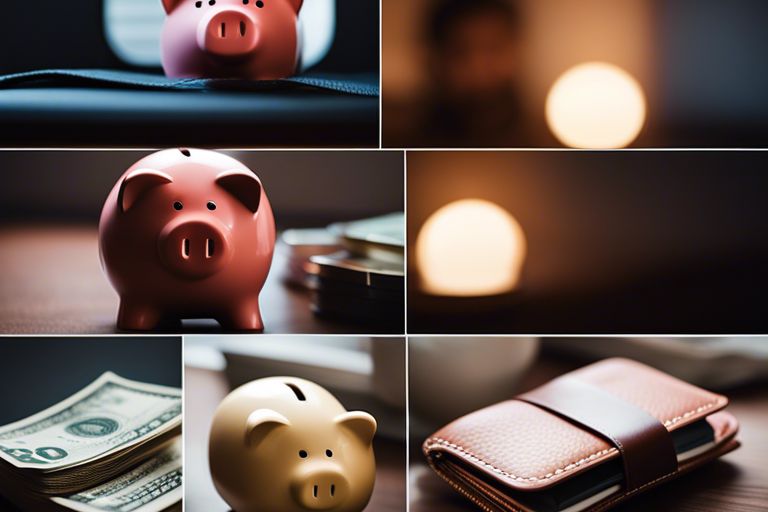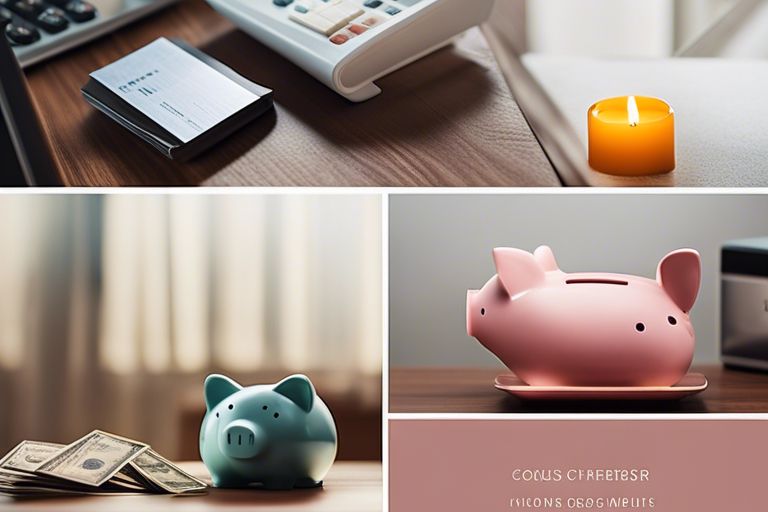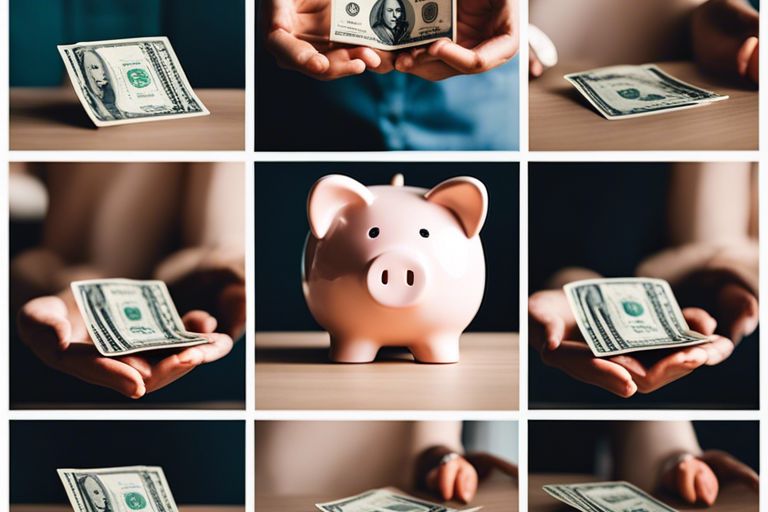Minimalism is not just a design aesthetic or a trend, but a way of life that can have a profound impact on your financial well-being. By embracing a simplified lifestyle, you can free yourself from the burden of excess possessions and expenses, ultimately leading to greater financial freedom. In this blog post, we will explore the powerful connection between minimalism and money, and how making intentional choices about what we own and how we spend can pave the way to a more financially secure future.
Key Takeaways:
- Intentional spending: Adopting a minimalist approach to money involves being deliberate about your purchases and prioritizing spending on necessities over wants.
- Decluttering finances: Simplifying your financial life by reducing unnecessary expenses, getting rid of debt, and organizing your budget can lead to greater financial freedom.
- Focus on experiences: Minimalism encourages people to shift their focus from material possessions to experiences, which can lead to a more fulfilling and meaningful life.
- Building savings: By cutting back on non-important spending, you can save more money and work towards achieving your financial goals, such as building an emergency fund or saving for retirement.
- Embracing contentment: Minimalism teaches the value of contentment with what you have, leading to reduced financial stress and a greater sense of satisfaction with your financial situation.
Understanding Minimalism
You Embracing Simplicity for Financial Freedom is the first step towards understanding the concept of minimalism. Minimalism is not just about decluttering your physical space; it is a lifestyle choice that focuses on prioritizing what truly matters and eliminating excess to create room for what adds value to your life.
Defining Minimalism as a Lifestyle Choice
The essence of minimalism lies in intentional living and mindful consumption. It is about living with purpose and being deliberate in your choices to ensure that everything you own or do serves a meaningful function in your life. By simplifying your possessions and commitments, you can reduce distractions, increase your focus, and ultimately experience a more fulfilling and content life.
The Historical Perspective of Minimalism
Minimalism has roots that date back centuries, with various cultures and philosophies embracing the concept of simplicity and minimal living. From ancient philosophies like Stoicism and Buddhism to modern movements like the Tiny House movement, minimalism has consistently emphasized the importance of living with less and finding joy in the absence of excess. Minimalism is not just a trend but a timeless principle that promotes mindfulness, gratitude, and freedom from the trappings of consumerism.

Minimalism and Personal Finance
Even in personal finance, minimalism plays a crucial role. By embracing a minimalist lifestyle, individuals can simplify their finances and achieve greater financial freedom. If you’re looking to dive deeper into this topic, you can check out this detailed guide on Simplify your finances and boost your life: A minimalist’s guide to financial freedom.
How Minimalism Affects Spending Habits
Affects how we spend our money significantly. Minimalists tend to prioritize value and purpose in their purchases, focusing on quality over quantity. By decluttering their lives and possessions, minimalists become more intentional with their buying decisions, which leads to reduced impulse purchases and unnecessary expenses. This shift in mindset enables individuals to break free from the consumerist cycle and cultivate a more mindful and intentional approach to spending.
Minimalism’s Impact on Savings and Investments
Investments in a minimalist lifestyle not only lead to a reduction in unnecessary expenses but also encourage individuals to save and invest wisely. By reevaluating their priorities and aligning their spending habits with their long-term financial goals, minimalists can allocate more resources towards saving and investing for the future. This intentional approach to money management fosters discipline and financial stability, paving the way for long-term wealth accumulation and security.
A minimalist lifestyle encourages individuals to focus on experiences and investments that truly matter to them, rather than on material possessions that depreciate in value over time. By practicing mindful consumption and intentional living, minimalists can build a solid financial foundation that supports their long-term goals and aspirations. Embracing minimalism in personal finance can lead to not only a more financially secure future but also a more fulfilling and purpose-driven life.
Minimalist Living
Decluttering Your Space for a Minimalist Home
All it takes to start living a minimalist lifestyle is a commitment to decluttering your space. Decluttering is the process of simplifying and organizing your living environment by getting rid of items that you no longer need or use. This can include clothes, books, appliances, or any other possessions that are taking up space in your home. By decluttering your space, you will not only create a more aesthetically pleasing environment but also reduce the mental and emotional burden that comes with excess belongings.
Mindful Consumption and the Art of Owning Less
Embracing mindful consumption is necessary for maintaining a minimalist lifestyle. It involves being intentional and thoughtful about the items you bring into your home, focusing on quality over quantity. Owning less allows you to appreciate the things you have more fully and avoid the trap of consumerism. By curating your possessions and only acquiring what truly adds value to your life, you can create a more peaceful and purposeful living space.
Understanding the difference between needs and wants is key to practicing mindful consumption. By questioning your purchases and only buying what is necessary or truly brings you joy, you can avoid accumulating unnecessary items and overspending. Mindful consumption is not about depriving yourself but about making conscious choices that align with your values and goals.
Strategies for a Minimalist Budget
Creating a Minimalist Budget Plan
Your journey towards financial freedom begins with creating a minimalist budget plan. Start by analyzing your income and expenses to determine where your money is going. Consider what expenses are imperative for your well-being and happiness, and which ones can be minimized or eliminated. By prioritizing your spending based on your values and goals, you can create a budget that aligns with your minimalist lifestyle.
Techniques for Streamlining Expenses
On the path to a minimalist budget, techniques for streamlining expenses can be instrumental. Cutting back on non-imperative items such as dining out or subscription services can free up funds to put towards savings or debt repayment. By living below your means and embracing a frugal mindset, you can reduce financial clutter and enjoy the simplicity of a minimalist lifestyle.
Budgeting for minimalist living doesn’t just mean limiting your spending – it’s also about making intentional choices with your money. Techniques for streamlining expenses can include renegotiating bills, opting for DIY projects over costly services, and being mindful of impulse purchases. For instance, before making a purchase, ask yourself if it aligns with your values and if it adds true value to your life.

Generating Income with Minimalism
Unlike traditional perceptions that more possessions lead to more wealth, a minimalist lifestyle advocates for intentional living and prioritizing items that truly add value to one’s life. Through decluttering and simplification, individuals can not only save money but also generate income by adopting a minimalist approach to their finances.
Ideas for Earning More Through a Simplified Lifestyle
Minimalism can open up various avenues for earning more by selling excess belongings, starting a side hustle based on one’s passion, or even renting out unused space. By reducing unnecessary expenses and focusing on what truly matters, individuals can free up resources to invest in income-generating opportunities that align with their values and goals.
Embracing the Gig Economy and Freelancing Opportunities
Ideas to leverage the gig economy and freelancing opportunities include offering services such as graphic design, writing, virtual assistance, or even driving for ride-sharing platforms. By embracing a minimalist mindset, individuals can use their skills and resources efficiently to create multiple streams of income and achieve financial independence.
Simplified living is not just about decluttering physical possessions but also about streamlining one’s financial strategies to maximize earning potential. By combining minimalism with smart financial choices, individuals can pave the way towards a more sustainable and fulfilling lifestyle that is not only focused on material wealth but on overall well-being and freedom.
Long-term Benefits of Minimalism
After Embracing Minimalism: Achieving Financial Freedom and Contentment, individuals often experience profound long-term benefits that extend beyond just financial savings.
Achieving Financial Freedom with Minimalist Principles
Any individual embracing minimalist principles is setting themselves up for long-term financial freedom. By prioritizing value over material possessions, individuals can save money, reduce debt, and build wealth more effectively. Minimalism encourages conscious spending habits, leading to a more intentional and purposeful approach to managing finances. By eliminating unnecessary expenses and focusing on what truly matters, individuals can build a solid foundation for long-term financial security.
The Environmental and Social Advantages of Minimalist Living
Social consciousness and environmental responsibility are key components of minimalist living. By consuming less and reducing waste, minimalists contribute to a healthier planet and a more sustainable future. Additionally, minimalist lifestyles often involve decluttering and simplifying living spaces, leading to a reduced environmental footprint. This intentional approach to consumption not only benefits the individual but also positively impacts society as a whole.
Social responsibility is another crucial aspect of minimalist living. By shifting focus away from material possessions, individuals can prioritize relationships, experiences, and community involvement. This shift towards a more meaningful and fulfilling life fosters stronger social connections and a sense of belonging. Minimalists often find greater satisfaction in experiences and connections rather than material goods, leading to a more enriched and socially conscious lifestyle.
Overcoming Challenges on the Path to Minimalism
Addressing Common Obstacles and Misconceptions
For many individuals, the idea of embracing minimalism can seem daunting. Common obstacles and misconceptions often revolve around the belief that minimalism requires getting rid of all possessions or living an austere lifestyle. However, minimalism is about intentional living and focusing on what truly adds value to your life.
Maintaining Commitment to Minimalism in a Consumerist Society
Society bombards us with messages encouraging excessive consumption and equating material possessions with success. To maintain a commitment to minimalism in a consumerist society, it is crucial to stay true to your values and priorities. Surrounding yourself with like-minded individuals who also appreciate minimalism can provide support and encouragement on your journey.
Misconceptions around minimalism often lead people to believe that it means sacrificing comfort and convenience. In reality, minimalism is about making conscious choices that align with your values and priorities, which can ultimately lead to a more fulfilling and liberated lifestyle. By challenging these misconceptions and embracing the principles of minimalism, individuals can pave the way towards financial freedom and a more intentional way of living.

Summing up
With this in mind, embracing minimalism can have a profound impact on our financial well-being. By simplifying our lives and focusing on what truly brings us value and joy, we can break free from the endless cycle of consumerism and debt. This intentional approach to managing our money not only helps us save more and spend less but also allows us to live a more fulfilling and meaningful life.
As we reassess our priorities and make conscious choices about how we use our resources, we can experience greater financial freedom and security. Minimalism offers a powerful framework for cultivating a more sustainable and intentional relationship with money, ultimately leading to a more balanced and fulfilling life.




